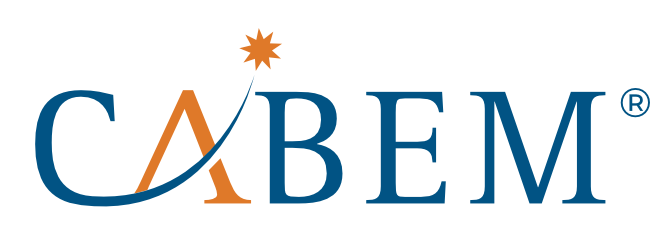A Closer Look at Two Approaches to Mentorship
Implementing a workplace mentorship program is a cost-effective solution to support employees in reaching their development goals. When you implement an effective mentoring program, you are utilizing your organization’s talent base and subject matter experts to facilitate learning and development. But it doesn’t end there. While the monetary value cannot be argued with, the benefits of mentoring apply to more than just your organization’s bottom line. When mentees are developing the skills and confidence needed to be competent in their jobs through their mentors, their mentors are gaining a sense of fulfillment and self-worth.
An organization and its employees collectively reap the rewards of a successful mentorship program. Now that we understand the value of mentoring, how can you determine what type of mentorship program is right for your organization specifically? There are many different types of mentoring programs. Let’s take a closer look at two of the most widely used methods.
Method 1: One-on-One Mentoring
In one-on-one mentoring programs, mentees are matched with a mentor to work together on a development plan over a specified period of time. Participants can typically choose tasks to work on via a predefined list of activities or may come up with ad hoc activities to work on based on a particular subject matter. Mentors and mentees can usually choose where and how they want to meet when they want to meet, and what the focus of the meeting will be. In this type of mentorship program, there is a single mentor matched to a single mentee.
One-on-one mentorships may follow a formal process requiring participants to track their performance goals, proficiency ratings, progress, etc., for the organization’s reporting purposes. One-on-one mentoring programs may also subscribe to a more casual approach, where the participants are simply checking off a to-do list of activities to verify completion. The focus of one-on-one mentoring relationships often involves soft skills development and relationship building.
While one-on-one mentoring programs can be beneficial to any member of an organization, they’re especially valuable for new managers. Matching a new manager with a seasoned mentor can help first-time managers build confidence along with the leadership skills they need to prosper in their new role and better serve their teams and direct reports. Areas of focus within a new manager’s development plan may aim to develop leadership soft skills such as problem-solving, communication, and active listening.
Method 2: Group-Based Mentoring
In a group-based mentoring program, a mentee may have more than one mentor. In cases where a mentee’s development plan has more than one area of focus, it may be necessary to match a mentee to a mentor for each subject matter. The goal of this type of mentorship program tends to be targeted, rapid, skill-building. Learning a specific skill is facilitated by matching the learner to a subject matter expert for that particular skill. For example, in a manufacturing environment, an employee may be required to learn how to safely operate multiple tools and equipment while performing their role. On-the-job training can be administered by matching the employee with a skilled technician for each apparatus.
Multiple mentors within a single development plan for a job role ensure the employee is trained and assessed to a target proficiency level for each tool or ability in the plan. Once the mentee and their mentors have worked through the tasks in the development plan for their role, you can be confident they are competent in their role and possess the skill set needed to be successful at their job.
“You know how they say that youth is wasted on the young? Well, I say don’t let the wisdom of age be wasted on you.” – Ted Lasso
The Importance of Tracking Progress with the Right Mentoring Platform
Whichever mentoring program you choose, it’s critical to identify and measure progress toward defined goals over time. The best way to accomplish this is through a mix of self-assessment and mentor evaluation with feedback. Tracking progress provides many benefits to an organization. When implementing a mentoring program, it’s important to have the right tools in your toolbox to manage it. A good mentoring platform will have pre-built reports with analytics that demonstrate the value of the program to its participants and prove the ROI of the mentoring program for your stakeholders.
Business intelligence gleaned from your mentoring platform can be useful in motivating and incentivizing participants. The application’s reporting capabilities should provide you with big picture skills inventories across your entire organization with the ability to drill down into individual skills, departments, roles, teams, and employees as well as Gap Analysis tools to hone in on skills gaps, call out areas in need of improvement, and identify subject matter experts.
How can CABEM Technologies Competency Manager help?
There are so many advantages to using competency management software in conjunction with your mentorship program.
- Identify subject matter experts based on specific skills, competencies, or role skill sets to match them with mentees.
- Employ development plans to dictate specific areas and activities of focus for formal mentorship programs that require regulatory reporting or safety training. For a more casual approach, allow participants to decide on activities to complete with the guidance and framework of a subject matter-based development plan.
- Leverage the robust reporting suite to prove ROI, generate interactive skills inventories across your organization, or drill down into specific skills, competencies, employees, roles, and departments. Identify subject matter experts or areas in need of improvement within your organization with the powerful gap analysis tool.
Contact CABEM for pricing or to schedule a demonstration. Our system allows for all methods of day-to-day learning, whether experiential, mentorship or peer to peer, to be captured and documented formally within a software system. If you are ready to add the benefits of competency management to your business this year, click here to learn about our product or contact us.

